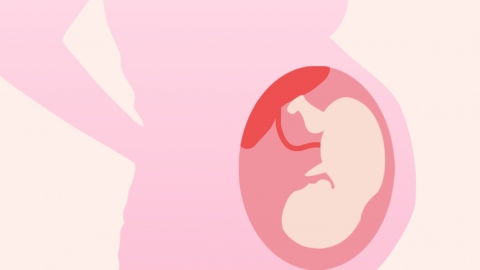What should I do if placental growth factor is too low at 17 weeks?
Low placental growth factor at 17 weeks may be caused by delayed placental development, maternal malnutrition, gestational hypertension, preeclampsia, or autoimmune diseases. This condition can be improved through enhanced nutrition, medication, and close monitoring. If the levels remain persistently low or are accompanied by symptoms such as dizziness and swelling, prompt medical attention is necessary.
1. Delayed placental development: Slight delays in the placenta's natural developmental pace can lead to insufficient secretion of growth factors, often without obvious discomfort. It is recommended to have regular ultrasound follow-ups to monitor placental status, follow medical advice regarding rest and activity, and avoid fatigue that could negatively affect placental development.
2. Maternal malnutrition: Inadequate intake of nutrients such as protein and vitamins during pregnancy can impair placental function and reduce the synthesis of growth factors. It is advised to consume more nutrient-rich foods such as lean meat, eggs, fruits, and vegetables. When necessary, nutritional supplements should be taken under a doctor’s guidance.

3. Gestational hypertension: Vascular spasms during pregnancy can impair blood supply to the placenta, affecting its function and reducing growth factor levels, often accompanied by elevated blood pressure and dizziness. Under medical supervision, medications such as labetalol tablets, nifedipine sustained-release tablets, and methyldopa tablets may be used to manage symptoms.
4. Preeclampsia: Endothelial damage leads to systemic small vessel spasms and inadequate placental perfusion, resulting in reduced growth factor secretion, along with symptoms such as edema and proteinuria. Under medical supervision, treatments may include magnesium sulfate injection, labetalol hydrochloride injection, and nifedipine controlled-release tablets to alleviate symptoms.
5. Autoimmune diseases: Abnormal immune responses in the mother may attack placental tissues, impairing placental function and lowering growth factor levels, possibly accompanied by joint pain and fatigue. Follow medical advice to use medications such as hydroxychloroquine tablets, prednisone tablets, or intravenous immunoglobulin to manage symptoms.
Ensure adequate sleep and avoid staying up late; maintain a balanced diet rich in high-quality protein and vitamins; stay emotionally stable; regularly monitor blood pressure and fetal development; and adopt gentle, holistic measures to support a healthy pregnancy.




